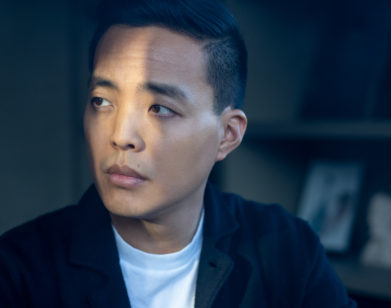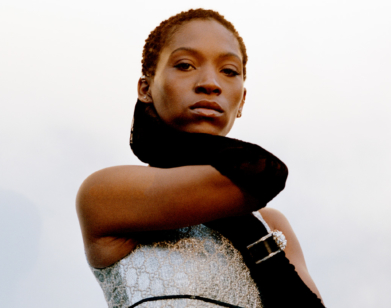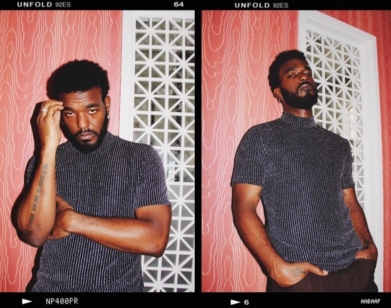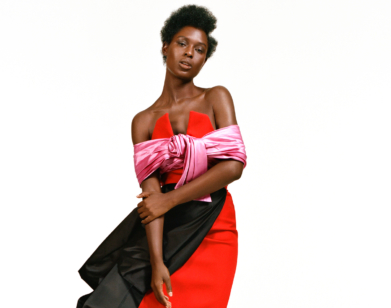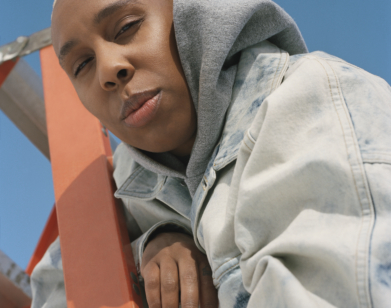IN CONVERSATION
Luke James Tells Lena Waithe About His Year of Theater and Transformation
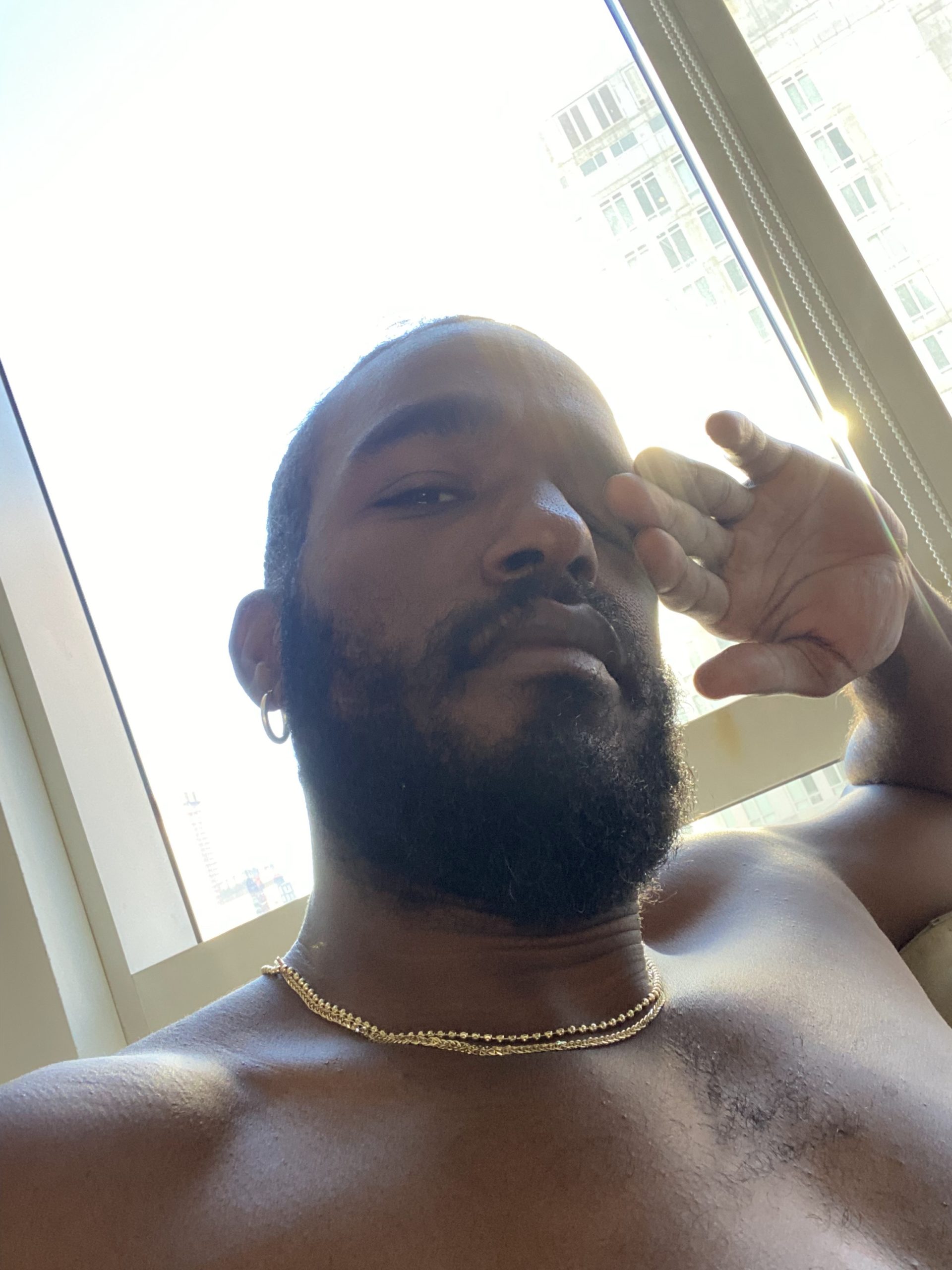 For Luke James, artistic evolution is the top priority. In the past few years alone, the R&B artist has released two hit albums —one of which earned him his second Grammy nomination— and made his leading man debut as the R&B singer Johnny Gill in the television miniseries The New Edition Story. Since then, James has landed parts as an unattainable love interest in Issa Rae‘s Insecure, an alcoholic and former R&B icon in Lee Daniel‘s Star, and, most recently, as a well-meaning older brother Lena Waithe‘s coming-of-age drama The Chi, which was just renewed for a fifth season. But rather than reveling in his many successes, James is bringing his talents to Broadway’s Golden Theatre in the new play Thoughts of a Colored Man, which opened late last month. The play, which runs through March, tells the story of seven Black men living in the heart of Brooklyn through a deft blend of spoken word, slam poetry, and plenty of dry humor. To celebrate his latest achievement, James hopped on the phone with his friend and collaborator on The Chi, Lena Waithe, to discuss this most recent creative pivot, Black representation in television, and the transformative power of community. — JULIANA UKIOMOGBE
For Luke James, artistic evolution is the top priority. In the past few years alone, the R&B artist has released two hit albums —one of which earned him his second Grammy nomination— and made his leading man debut as the R&B singer Johnny Gill in the television miniseries The New Edition Story. Since then, James has landed parts as an unattainable love interest in Issa Rae‘s Insecure, an alcoholic and former R&B icon in Lee Daniel‘s Star, and, most recently, as a well-meaning older brother Lena Waithe‘s coming-of-age drama The Chi, which was just renewed for a fifth season. But rather than reveling in his many successes, James is bringing his talents to Broadway’s Golden Theatre in the new play Thoughts of a Colored Man, which opened late last month. The play, which runs through March, tells the story of seven Black men living in the heart of Brooklyn through a deft blend of spoken word, slam poetry, and plenty of dry humor. To celebrate his latest achievement, James hopped on the phone with his friend and collaborator on The Chi, Lena Waithe, to discuss this most recent creative pivot, Black representation in television, and the transformative power of community. — JULIANA UKIOMOGBE
———
LENA WAITHE: Hey! How are you?
LUKE JAMES: Good. Really good.
WAITHE: So, let’s talk about The Chi, that thing we worked on together. I’m so grateful to you for joining that family and leading by example and stepping into that role.
JAMES: I’m grateful to be a part of it. Trust me.
WAITHE: We’re grateful to have you. I saw you for the first time in an elevator at Edmonds Entertainment. You were part of a duo then. Now, I’ve been around. I look young, but I’ve been at it. You know what I’m saying? We shared an elevator together one day, quietly, and look at us now.
JAMES: It’s so wild to me, just to think about all the time that’s passed.
WAITHE: You remember that day? We kind of clocked each other.
JAMES: It’s vague. We used to live in that building. We were fresh out of New Orleans and we just got signed. We had nothing else to do. We just wanted to be in the studio as much as possible.
WAITHE: And I was an intern working at Edmonds Entertainment. I was happy to be in the building. And now, fast forward to me casting for the role of Trig. I knew that the character needed to have care, but also needed to have a past. You have that. You’re sort of melancholy, but there’s also a boyishness that allows people to feel safe in your presence. So, you really embody that. I remember us having that conversation early on. What do you remember about our conversation before you took the part?
JAMES: Well first, I asked god and the universe that my next endeavor be something different and something far outside of my comfort zone to help me better myself as an artist. Then, this opportunity came along. I read the script and I knew what it was asking, and I knew you. I was also a fan of the show. I was like, “Okay, I’m down for this. I feel like I can bring something to this guy and this guy can do something for me.”
WAITHE: I’ve watched Trig become more like you. The writers are inspired by you and how you move and you walk. Trig is going to start to embody that because characters and people sometimes tend to morph.
JAMES: Yeah, and I find it to be so beautiful and easy, if I can use that word. My first impression, just from talking to you, you made me feel safe. You made me understand the importance of this character. There’s a mission behind this project, and I felt that. I feel that in your work as a whole. I was like “I’m ready to ride with you.”
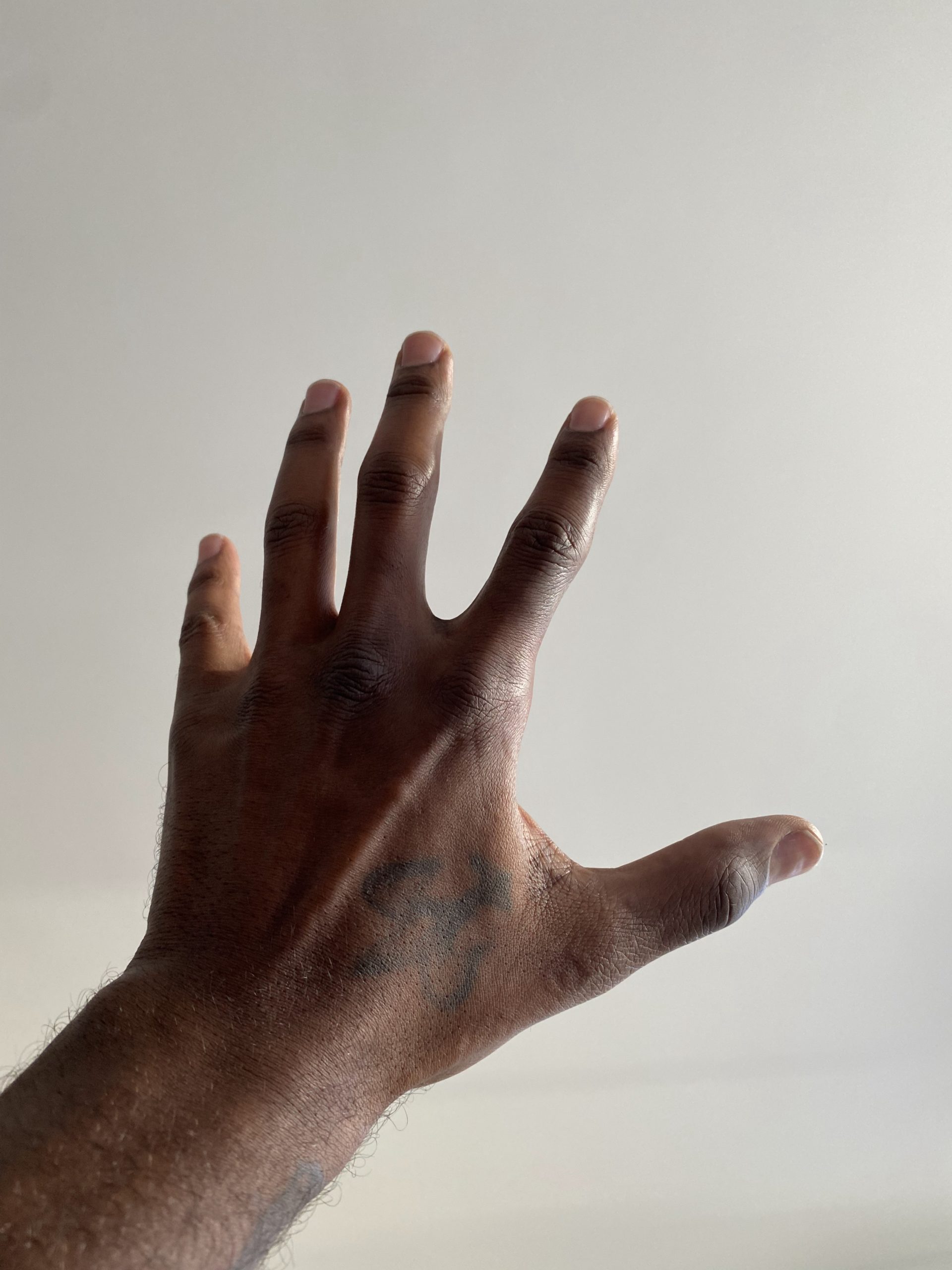
WAITHE: It’s been a beautiful journey. And you know what’s so interesting? The conversation about images of Black people. People talk about wanting to see positive images of Black men on screen and on stage. But I do think we need to redefine what we call a positive image. What does it mean to be positive? Does that mean to be perfect? Does that mean to have never stumbled? Does that mean that you don’t make mistakes? Because that means you aren’t human. And my whole point is to humanize us.
JAMES: Right.
WAITHE: That means we can’t be perfect, but it doesn’t mean you’re not a positive image. I think you’re such a positive character.
JAMES: I think so too.
WAITHE: Can you speak to that?
JAMES: Growing up in New Orleans, most of the people in my life who have inspired me are people that the world would make negative assumptions about. People might feel intimidated just off of the strength of how they talk, or how they look. But for me, they were always positive. Their hair in cornrows was always a positive, the tattoos were always a positive, the gold fronts—it was all still positive to me. That’s part of New Orleans. It’s part of our makeup. The way we talk, our passion behind how we talk, can be scary or offensive to some who don’t understand it and who, probably prematurely, view us from a lens of fear. Some people can’t accept the humanity of a person as they are, so you have to make them something else. They don’t always look clean cut like the President.
WAITHE: Oftentimes, it’s a Black man saying “Hey Lena, I want to see more positive images of Black men on TV.” And I always wonder, do you reflect what you want to see? Are you what we would call a positive image of a Black man?
JAMES: I hear that, too. And I say—
WAITHE: —“What do you actually mean?”
JAMES: Yes!
WAITHE: What are you really asking for? Because if we have characters that are perfect and aren’t flawed, then wouldn’t they be boring? Would you even watch?
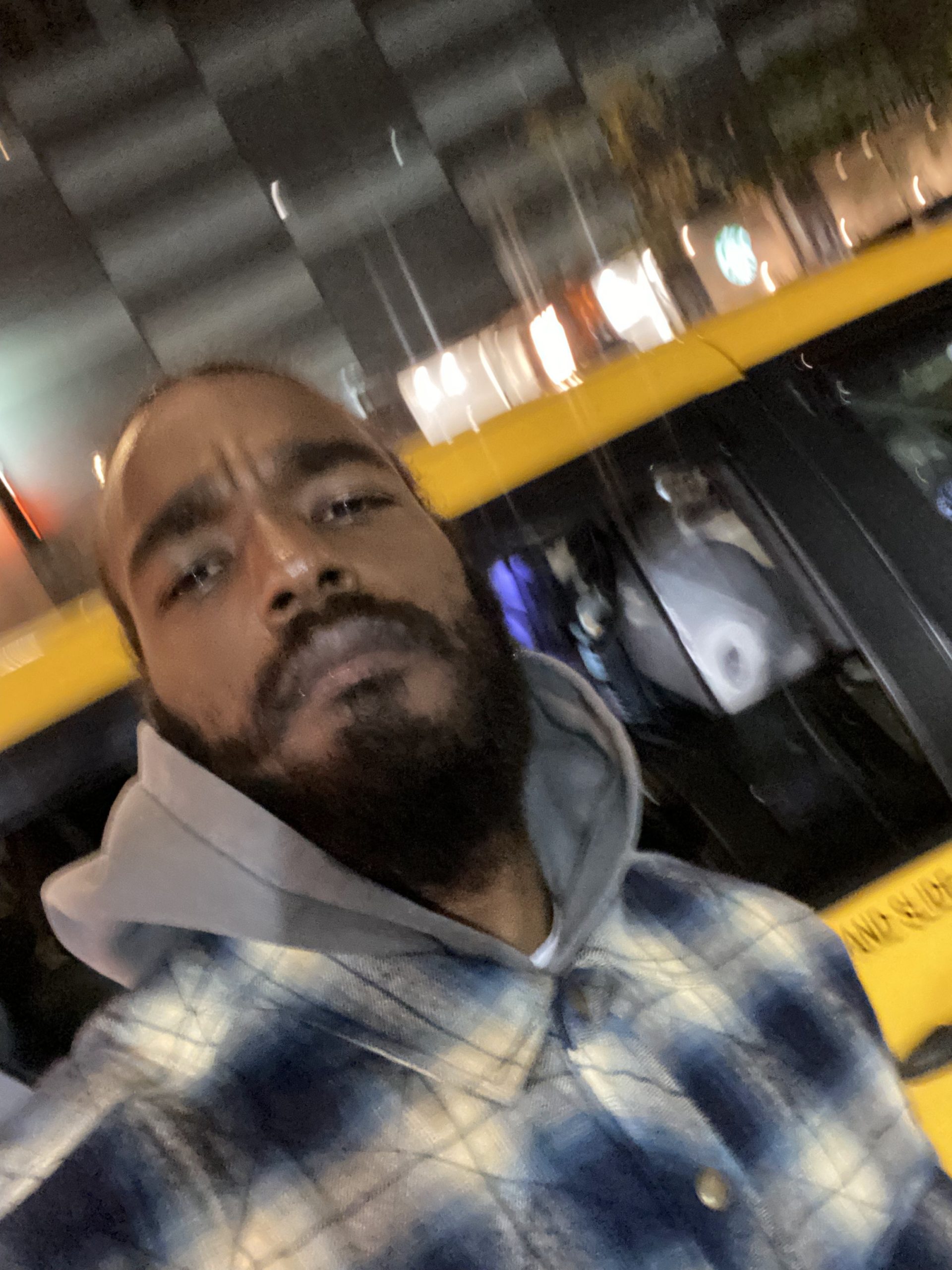
JAMES: That’s not real. And that’s the beauty of your work. The Chi is not escapism—I think it’s a mirror, and it can sometimes be hard to look at yourself. I resonate with that. It is a scary thing.
WAITHE: That’s why people want to be seen as so perfect and beautiful and alluring and amazing. Black audiences really want that, because the world tells them the opposite. So they need Black artists to tell them who they could be. But also sometimes our Black artists, such as Nina Simone, tell us who we are.
JAMES: Who we are is beautiful and grandiose.
WAITHE: School Days and Bad Hair. Ricky getting shot by a brother that looks just like him. That’s also part of our reality. It’s not propaganda.
JAMES: This is what it looks like for real. Your work creates the conversation. And at the end of the day, that’s what you want. You want people to walk away from it thinking about it. Even if it moves them in a negative way, you hope that they start to deal with it, because this is the world. This is not make-believe. Yes, in the show we play with the zeitgeist of things, but in the end, it’s not make-believe. It’s important to see that. It’s important to see value in our Blackness and in what makes us strong, and then also to acknowledge the things that make us weak. Sometimes people forget and don’t know what they’re watching. They think that TV is only supposed to “take me out of my day, take me out of my hood, take me out of this.” And that’s understandable. I get that.
WAITHE: There are shows for that.
JAMES: There’s a plethora. But we need all of it—the stuff that takes us out of our shit, and the stuff that puts us right in the middle of it. As humanity, we need to evolve and we need these things to shake us up.
WAITHE: I think people confuse success with something being timeless. Just because somebody is applauding the work now, doesn’t mean they’ll be applauding it 20 years from now. In a weird way, you cannot do what we’re doing for applause.
JAMES: You cannot.
WAITHE: We’re doing it because we want engagement. Even if someone says, “I hate that show, it bothers me,” there’s been success. You felt something. You weren’t indifferent.
JAMES: Yes. And we’re not looking for applause, we’re in the present. If you stay in the present, then whatever happens is what’s supposed to happen. And then down the line, you look back at and say, “Oh my god, that was monumental.”
WAITHE: Speaking of things evolving and growing, we’re currently in the writers’ room for season five of The Chi.
JAMES: Everybody’s been asking me.
WAITHE: I’m definitely thinking about Trig and how he’s going to evolve. I’ll give Interview an exclusive here. I want him to start going by his government name.
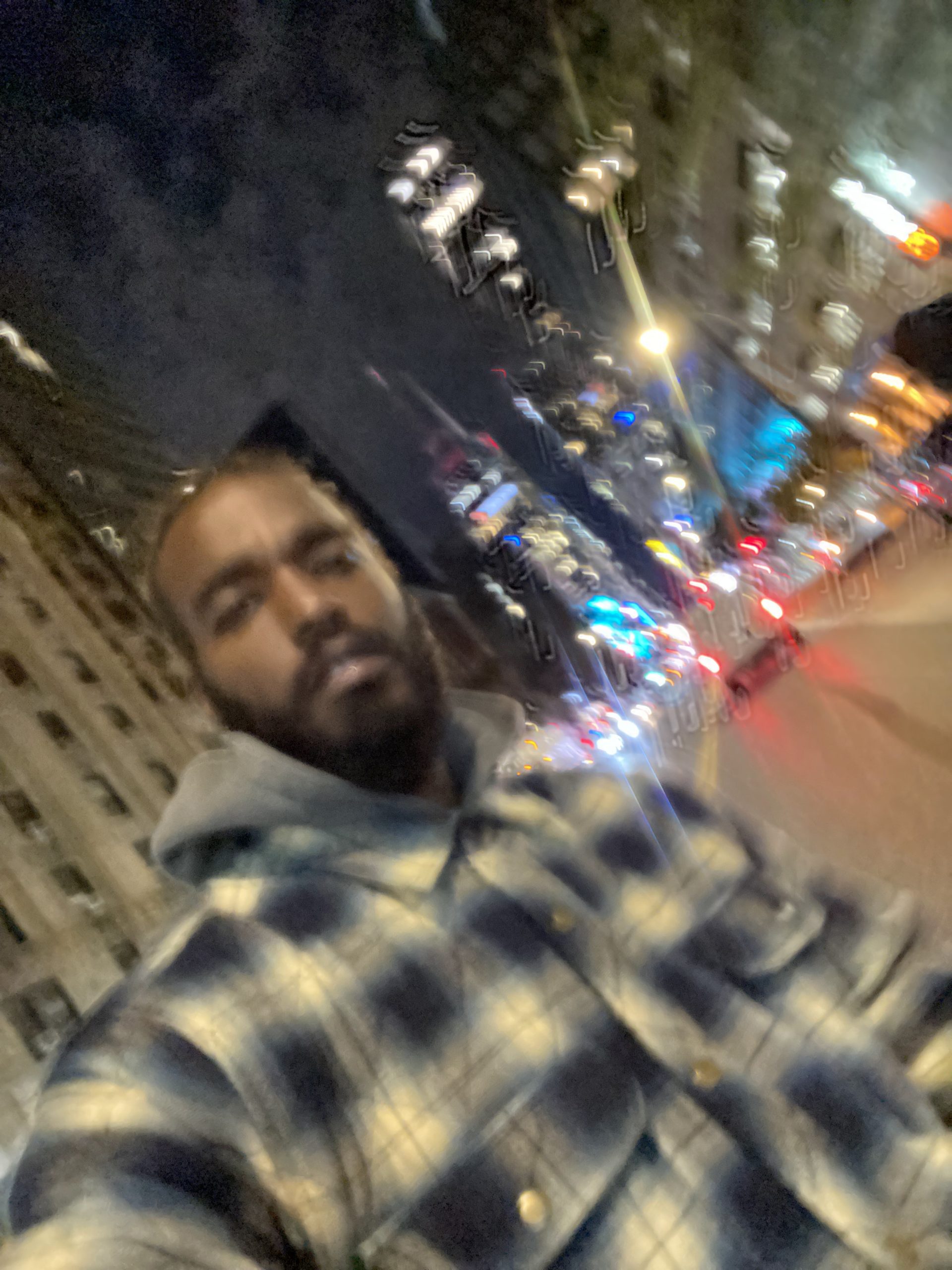
JAMES: You know I love that.
WAITHE: Because he’s not the same guy anymore. If you don’t mind me saying so, we really focus on the craft at The Chi—we have a wonderful acting coach that works with us. She said, “Luke has to realize that he’s still playing Trig from last season.”
JAMES: Yeah. I wasn’t evolving with him.
WAITHE: Luke James needs to evolve at the same time as Trig, and I need to be making sure that as you evolve, so does the character. So, talk to me about Thoughts of a Colored Man. Stage work, they say, is not for everybody. I’m a big fan of theater and I’m going to come see you. Talk to me about what it has been like for you to go to the stage in this way and to become a part of this community.
JAMES: It’s been transcendent and transformative. It’s about seven Black men from all walks of life. Upon getting into the script, we personally have to peel back the layers of ourselves and conjure all these experiences that we haven’t personally dealt with in our own lives, because that’s what the text is asking of us. That’s what our director Steve Broadnax III and his writer Keenan Scott II are asking us to do. It’s been therapeutic in every way. It is a new muscle that I don’t think I’ve ever used, but it’s such an exhilarating ride. I got the offer while we were filming The Chi, and after reading the script, it just resonated with me so deeply. I was just talking to someone before the show opened on Broadway, and I was saying, “If the show were to shut down right now, I’ve already received more than I ever hoped for from this experience.” I’ve been on a journey since The Chi to be a part of things that are beyond me, and that allow me to be a vessel for the work of Black folks. I want to tell our stories, and for us to be fully human and have full space to explore our ups and our downs and to be surrounded by love. So this experience has been outstanding and I’m so grateful to be in it. As an artist, I feel so strong right now.
WAITHE: I can tell. This is actually a beautiful transition to my question about your Grammy-nominated album, A Live Sensation, which I’m excited to discuss.
JAMES: Thank you.
WAITHE: But first, I want to say that I really feel grateful that you asked for me to sit with you and have this conversation, because I feel like you and I have really bonded. Obviously now we’re colleagues, but we are also very much on the same wavelength. You’re someone who reminds me why I am the kind of artist that I am. Someone who works with intention. Your song, “I Want You,” is on repeat at my house. People try their whole careers and never find that lighting in a bottle, and you’ve found it multiple times. One of my favorite songs of yours is “These Arms.”
JAMES: I value that. With Thoughts of a Colored Man, I totally understand what the mission is—our goal is to be of service. That fuels me when I wake up in the morning. Like you, I am a true artist. If I don’t fuck with it, you’re going to feel that. I don’t want to live life doing things that I don’t love doing. In the end, I’m in love with my craft.
WAITHE: One of my other favorite songs of yours is “Love XYZ.”
JAMES: Oh yeah, that was Prince’s favorite joint.
WAITHE: Great writers know great music.
JAMES: I’m proud of that. That means everything. I’m blushing.
WAITHE: It’s a beautiful thing. And also, I’m honored to be born in ’84 and from Chicago. The music that I know is Donny Hathaway, Sam Cooke, and Chaka Khan.
JAMES: I resonate with that, because New Orleans is the same.
WAITHE: Yeah, we shot Queen & Slim in New Orleans. It left a handprint on me. It’s a special place.
JAMES: I was jealous! I was like, “Where was this audition?” Daniel [Kaluuya] didn’t let nobody get nothin’.
WAITHE: He just asked me to dinner. We were talking and he was like, “What are you working on?” I was like, “Well…” He got an early draft, too.
JAMES: That’s fire. People always wait on stuff. Sometimes you have to reach out.
WAITHE: It was so chill. I really honored the friendships of [James] Baldwin and [Lorraine] Hansberry. We’re a class and a group of friends. We’re family. Me and Issa [Rae] go way back. Justin [Simien] is my brother. We came up watching Wesley [Snipes], Denzel [Washington], Rosie Perez, Spike Lee.
JAMES: A Different World. Living Single.
WAITHE: Yes! Cousin Pam turns into Maxine Shaw. Don’t get me started. Tootie turns into Regine. We’re all in it. The girl that Will Smith liked on Fresh Prince becomes Khadijah.
JAMES: Boom!
WAITHE: I’m an encyclopedia.
JAMES: You’re a student of the craft. You recognize the shoulders you stand on. That’s your foundation. You’re a beautiful encyclopedia of our Black history, which is profound and should be celebrated at its highest level. That’s important for us.
WAITHE: You know, when I thought about this conversation, I was remembering for a long time that people looked at you and wondered, “Is he going to fade away? Is he going to figure the industry out?” Because we all knew you were talented. There are a lot of fans, I’m not alone. There’s The Skorpion Show, shoutout to Kevin [Simmons] and Makael [McLendon]. Give them a shout in this article, by the way.
JAMES: Please.
WAITHE: Those are two amazing Black men from Philly. They’re big supporters of yours. I can relate to their fandom. I think you are proof that so many people were praying that you would not go away. Toni Morrison got us all in check when she spoke about the invisible man—”Invisible to who?”—and I think about that daily. So many Black people wanted you to know that you weren’t invisible, and I’m honored to be a part of your journey.

